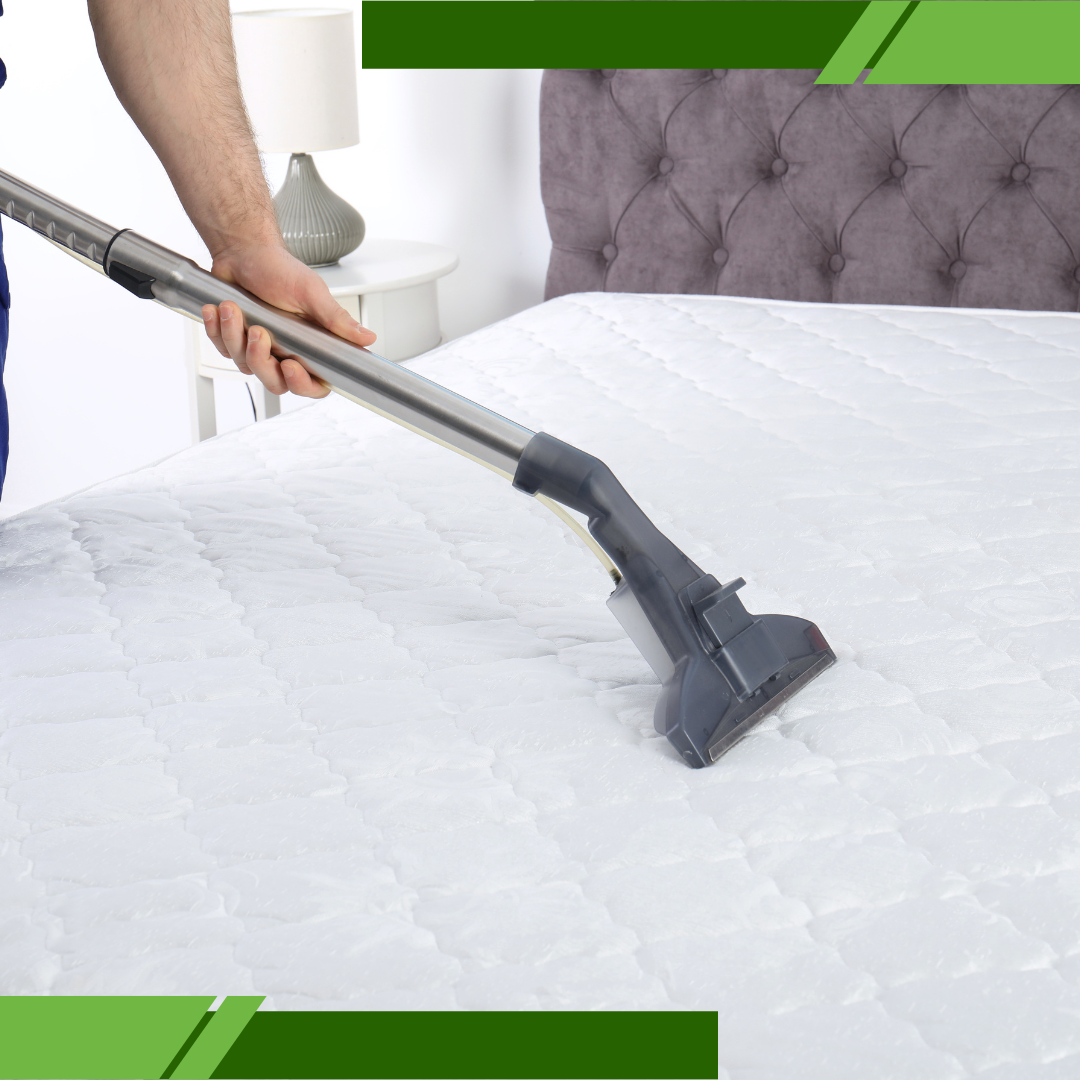Get in touch
Fill this up to proceed

We are committed to providing a world-class carpet, rug, upholstery, drapery or mattress cleaning services that will open your door to a happier and healthier green indoor environment.

Think of your mattress as a long-term investment. You spend nearly a third of your life on it, so giving it a little maintenance makes a big difference. Over time, sweat, dead skin, dust mites, and allergens build up inside the mattress. This can affect not only your sleep but also your health—especially if you suffer from allergies or asthma. A poorly maintained mattress can also lose its support faster.
On the other hand, good mattress care helps preserve the internal structure, keeps it fresh, and improves the hygiene of your entire sleep environment. Regular cleaning and rotating can keep your mattress feeling like new. With just a few simple habits, you can dramatically increase its comfort and performance—saving yourself from an early and expensive replacement.

You don’t need professional tools to practice proper mattress care. A few consistent routines can go a long way toward keeping it clean and supportive:
Even these small efforts add up to a cleaner, longer-lasting mattress.
Every few months, your mattress deserves a little extra attention. This deeper level of care can prevent odors, reduce allergens, and keep the internal materials in good shape. One effective method is baking soda deodorizing—just sprinkle baking soda over the surface, let it sit for an hour, and vacuum it up thoroughly. This neutralizes unwanted smells and absorbs lingering moisture.
If your mattress is double-sided (many modern ones aren’t), flipping it is also an option—but be sure to check the manufacturer’s instructions. Also, don’t forget the foundation. A sagging box spring or broken slats can ruin even the best mattress. Every season, take a few minutes to inspect your bed frame and foundation for support issues. A sturdy base is essential for proper mattress care.
Light cleaning (vacuuming and deodorizing) every 1–2 months is ideal, along with weekly sheet changes. Deep cleaning should be done twice a year.
No—memory foam should never be soaked. Spot clean only with a damp cloth and allow it to fully dry.
No. A topper adds comfort and cushioning, while a protector guards against moisture, stains, and allergens.
These are usually from sweat, body oils, or spills. Using a waterproof mattress protector helps prevent them.
Yes! Even new mattresses can have dust or particles from packaging and transport. A quick vacuum helps start fresh.

We are committed to providing a world-class carpet, rug, upholstery, drapery or mattress cleaning services that will open your door to a happier and healthier green indoor environment.
We are committed to providing a world-class carpet, rug, upholstery, drapery or mattress cleaning services that will open your door to a happier and healthier green indoor environment.